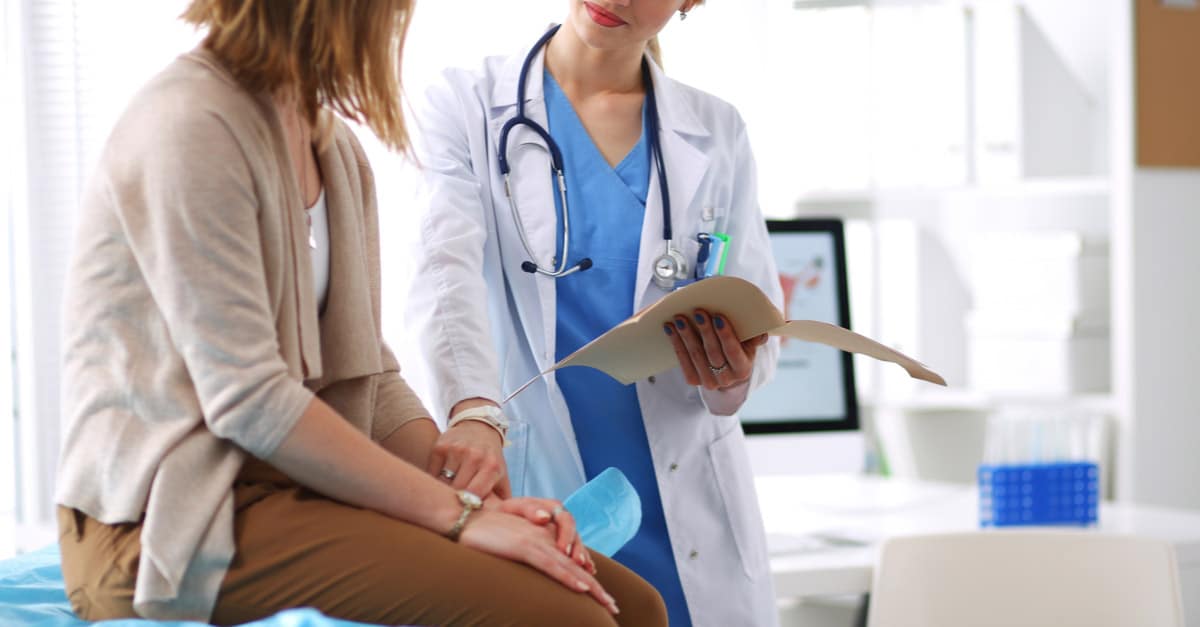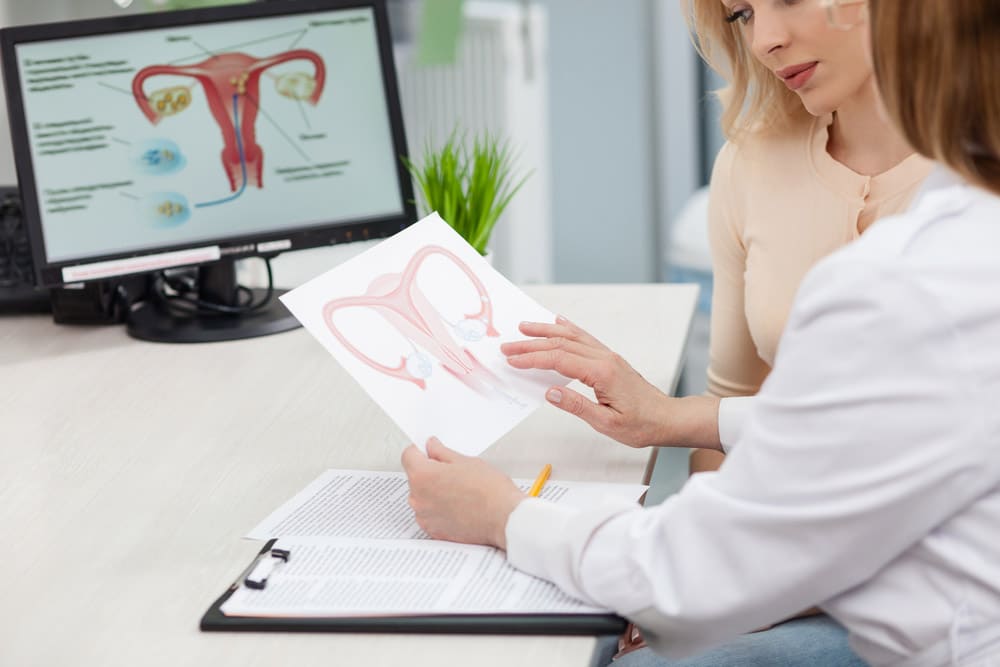When fibroids comes back, you can fret, or you can get proactive. How can I stop fibroids returning? That’s the question that many women have when they have had a hysterectomy for fibroids, and wondered if more operations will be necessary in the future. I am hoping it would help you to stop fibroids from coming back!
Fibroids, also known as myomas, leiomyomas, or uterine fibroids, are abnormal growth in the uterus. They are made up of muscles and other tissues and form in and around the uterine wall. Fibroids may be as small as a grain and as big as a cricket ball.
Fibroids develop during the reproductive years and there may be one or multiple fibroids. You may or may not need treatment for fibroids. Usually, they are not cancerous or life-threatening but sometimes they can cause serious complications.
If you are suffering from fibroids, you don’t need to worry much as several treatment options are there that you can use to treat fibroids and stop them from coming back.
In This Article
Ayurvedic Treatment For Fibroids
According to Ayurveda, fibroids are a result of disturbances in the Kapha, Pitta, and Vata doshas. The Ayurvedic treatment of fibroids aims to restore the balance between all three doshas.
Several Ayurvedic medicines are available that you can treat your problem with, but make sure to consult with an experienced Ayurvedic doctor before trying them. The following are considered the best Ayurvedic medicines for fibroids.
- Shatavari
- Kanchanaar
- Shudh Guggulu
- Haridra Khanda
- Kaishore Guggulu
These Ayurvedic medicines increase the blood flow to the uterus that helps in flushing the toxins out of the body. These medicines may potentially improve the symptoms of fibroids and help you live a healthy and peaceful life.
Homeopathy Treatment For Fibroids
You can also try Homeopathy treatment to get rid of fibroids. Certain homeopathic medicines can help you get rid of this miserable disease. These medicines can also improve the symptoms of fibroids or completely dissolve them.
Following homeopathic medicines are considered the most effective homeopathic treatment of uterine fibroids.
- Ferrum Met
- Ustilago Maydis
- Sabina Officinalis
- Trillium Pendulum
- Fraxinus Americana
- Thlapsi Busra Pastoris
It’s highly suggested to consult with a Homeopathic doctor if you are planning to take these medicines for your treatment. A homeopathic doctor prescribes and decides the doses of these medicines based on the severity of fibroids and your health issues so that possible complications can be avoided.
Therefore, it’s important to discuss with a homeopathic doctor before using any of the above-mentioned medicines.
Yoga For Fibroids
Yoga is also an effective way of treating uterine fibroids as well as discomforts associated with them. To get rid of uterine fibroids, you can practice a few yoga asanas daily.
Most women with fibroids suffer from irregular periods and yoga can help in keeping the menstrual cycle normal. To keep your uterus in good health and to treat fibroids, you can practice the following yoga asanas.
- Janu Sirsana
- Bhujangasana
- Viparita Karani
- Paschimottasana
- Baddha Konasana
- Moola Bandha Asana
Practicing these yoga asanas regularly can boost the blood circulation to your uterus and prevent the accumulation of harmful toxins in the uterus as well.
Apart from treating fibroids, these yoga asanas can also keep away several issues related to your reproductive health. It’s highly suggested to practice these yoga asanas under the guidance of a yoga guru.
What are home Remedies For Fibroids
Home remedies have their importance in treating fibroids. If you are suffering from fibroids and want to get rid of them with the help of home remedies, you should do the following.
Healthy Diet For Fibroids
Diet plays an extremely important role in keeping your body healthy and free of disease. If you have fibroids, you should be extra careful with whatever you consume daily. A balanced diet can potentially help ease some symptoms and complications of fibroids. Some foods may even slow down the growth of fibroids as well.
Add Food Rich In Fiber
Foods rich in fiber aid in weight loss and balances hormones and keep the levels of blood sugar steady in your body. This way consumption of fiber-rich foods may help in preventing as well as slowing down the growth of fibroids.
To make your diet healthy enough to treat fibroids, you should add cooked and raw vegetables, cooked and raw dried fruits, whole grain bread, pasta, oats, lentils, beans, barley, and cruciferous vegetables to your diet.
Foods Rich In Potassium For Fibroids
This helps in countering the effects of salt to balance your blood pressure, subsiding the symptoms of fibroids. To get enough potassium, you should add bananas, avocado, dates, oat bran, potatoes, tomatoes, citrus, collard green, and lentils to your diet.
Dairy Products For Fibroids
There are certain dairy products that you should also add to your diet. This includes yogurt and full-fat cheese as well as dairy rich in calcium, magnesium, and phosphorus. Adding these products may potentially slow down the growth of fibroids and improve the symptoms.
Green Tea For Fibroids
Green tea is one of the best home remedies to treat fibroids. It contains several antioxidants and epigallocatechin gallate is one of them. Experts believe that epigallocatechin gallate may potentially slow down the progress of fibroids and increase estrogen levels. Green tea is considered best in controlling heavy bleeding due to fibroids.
Avoid Sugar
Consumption of foods rich in sugar increases blood sugar that may potentially worsen fibroids. This can pressurize your body to produce much insulin that causes weight gain and affect the growth of fibroids. Therefore, you should avoid fruit juice, soda and sugar drinks, packaged energy bars, glucose, table sugar, corn syrup, white bread, rice, pasta, flour, and potato chips.
Also, small to moderate consumption of red meat, soybeans, soy milk, flaxseed, and tofu can have a protective effect, but they can also have a negative effect when consumed in high amounts. Therefore, you should limit the consumption of these products as they can pressurize your body to produce more estrogen.
Above all, either minimize your consumption of alcohol and cigarettes or quit them right away.

Medications For Fibroids
There are certain medications that you can also use to improve the symptoms of fibroids. Medications will not help you get rid of your problem, but they can subside the pain and discomfort caused by fibroids.
You can use a gonadotropin-releasing hormone (GnRH) antagonist to stop menstruation and shrink fibroids. To get relief from the symptoms and prevent pregnancy, you can take a progestin-releasing intrauterine device (IUD. You can use tranexamic acid to ease heavy periods and oral contraceptives to control bleeding as well as Non-steroidal anti-inflammatory drugs (NSAIDs) for pain relief.
Fibroid Embolization
This is a non-surgical procedure during which a gynecologist shrinks the fibroids. During fibroids embolization, a gynecologist injects a fluid containing polyvinyl alcohol (PVA) into the arteries. PVA cuts off the blood supply to the uterus, causing them to shrink and die.
Embolization can help you get rid of fibroids and their symptoms as well as discomforts associated with them. Even though fibroid embolization is a daycare procedure, you might need to stay at the hospital for a day due to the after-effects such as nausea and vomiting.
Surgical Treatments For Fibroids
Since fibroids are not cancerous or life-threatening complications, you can decide if you want to live with them or have them surgically removed. You may not need surgery if fibroids don’t interfere with your daily life. However, you should consider undergoing a surgical procedure if you experience pain and pressure in your lower belly, need frequent urination, trouble emptying your bladder, heavy menstrual bleeding, or bleeding between periods.
Experts believe that sometimes fibroids increase the chances of having a miscarriage or other serious complications during pregnancy. Therefore, surgery might be an option if you want to get pregnant in the future. There are two types of surgical procedures for fibroids, this includes myomectomy and hysterectomy.
Which types of surgical procedure you and your doctor choose to treat fibroids largely depends on several factors such as the size of fibroids, the number of fibroids, where are fibroids located in the uterus, or if you want to get pregnant in the future, etc.
Myomectomy
This is a surgical procedure during which the gynecologist removes fibroids from your uterus. If you have planned to get pregnant in the future, then your doctor may recommend this surgery over other procedures. However, myomectomy may cause scarring that can lead to infertility.
After this surgery, you will have to wait for around 4-6 months before you try to conceive. The symptoms of fibroids go away in most women after completion of this surgery, but fibroids come back in some of the cases.
The result of myomectomy largely depends on several factors such as how many fibroids you have and whether the surgeon could remove them all or not. Myomectomy can be performed in several ways as it may be an abdominal surgery or the surgeon may use a laparoscope or hysteroscope to remove fibroids without making a big incision in your abdomen.
Not only this, but there is also a new method of myomectomy during which the surgeon uses MRI-guided intense ultrasound energy to shrink or destroy fibroids.
Hysterectomy
Hysterectomy is a surgical procedure during which a surgeon removes a part or all of your uterus. This procedure is considered the best option when you have a lot of fibroids, their size is big and you are not planning to have children in the future.
Hysterectomy can be performed in several ways. This includes the following.
- Laparotomy or Abdominal Hysterectomy: During this procedure, the surgeon makes an incision in your lower abdomen and removes the uterus.
- Vaginal Hysterectomy: In this procedure, the surgeon removes the uterus through your vagina. Usually, this procedure is not carried out if you have very large fibroids.
- Laparoscopic Hysterectomy: During this surgical procedure, the surgeon uses a small medical instrument called a laparoscope. A laparoscope is a thin and long tube that has a light and a camera at the front. The surgeon inserts the laparoscope in your abdomen through a tiny incision. During this procedure, the surgeon makes 4 tiny incisions instead of one large incision. Once the surgeon can see the uterus, he/she cuts the uterus into small pieces and then removes them one by one.
It takes around 6-8 weeks for complete recovery after abdominal hysterectomy. However, the recovery after vaginal or laparoscopic hysterectomy is quicker. Hysterectomy is the only surgical treatment of fibroids that are considered the best option. It cures fibroids and completely relieves their symptoms. However, you will no longer be able to get pregnant in the future.
If you have fibroids and are seeking permanent treatment so that they don’t come back, you should choose laparoscopic hysterectomy after consulting with an experienced gynecologist. Pristyn Care is one of the trustworthy names in the healthcare industry that offers laparoscopic hysterectomy in Hyderabad and all other major cities across India. You can consult one of their expert gynecologists by simply booking your online appointment at the clinic near you in the city.











